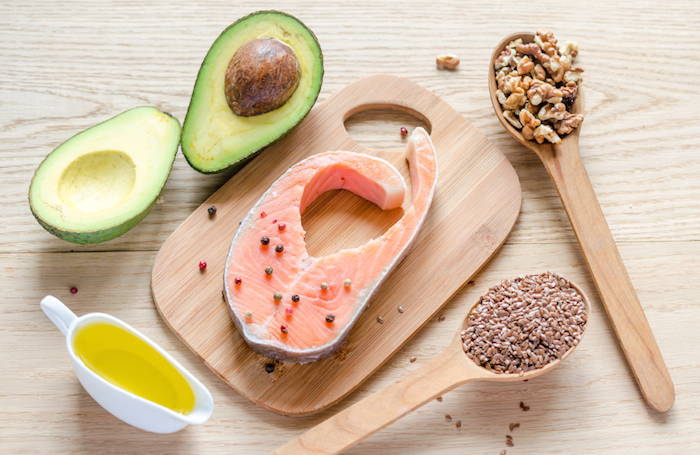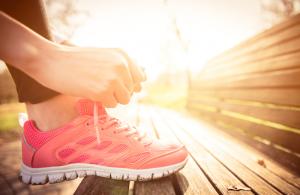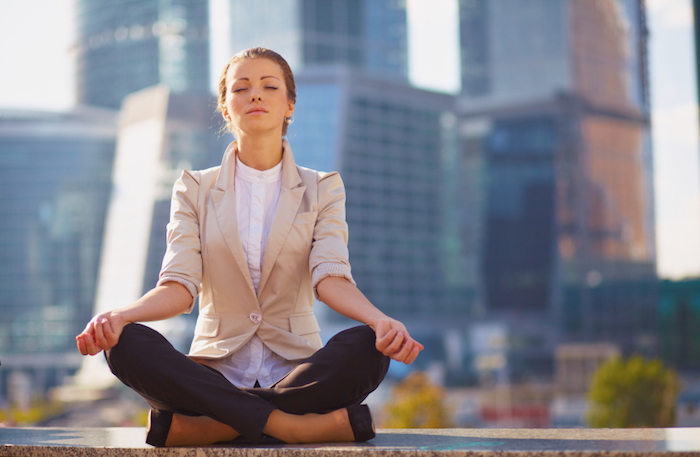You’ve probably heard about the stress hormones cortisol and adrenaline. Well, DHEA is a hormone in the body that has a calming and anti-ageing effect, helping relieve stress. Calmista blogger Charlotte Watts reports on how to get more of it
There’s a lot of talk about the hormones that we release when we jump up into the stress response. It’s great that there’s much more awareness of rising adrenaline and cortisol and their effects, but what about coming down from the heightened response these provoke? Every reaction in our bodies needs an opposite reaction or we would simply keep going in the same direction until the gas ran out. Bringing the body back to a resting state after a stress response is a priority for our recover, as the stress state uses up so much fuel and nutrients and can cause so much damage via inflammation and oxidation. Being able to come back to baseline from a period of stress is a crucial part of not feeling on ‘constant alert’ or continually overwhelmed.
Coming down from up, up, up

The hormone that opposes the major stress hormone cortisol (and so brings us back down off the stressed out ceiling) has the punchy name of didehydroepiandrosterone – so let’s continue by referring to it with its easier acronym, DHEA. This is the steroid hormone (made from fat, yes we need plenty in our diets!) that runs around our bodies most abundantly and is made in our adrenal glands, reproductive organs and the brain. It has far-reaching consequences in allowing us to recover from stress.
As DHEA comes into play when our minds and bodies perceive the ‘danger’ has passed, it is associated with how well we cope with challenges – how adaptable and resilient we are. Lower levels of DHEA have been observed in women with adrenal insufficiency and burnout and shown as symptoms of feeling tired, achy and weak. I regularly test clients for DHEA alongside cortisol and those with low DHEA report feeling chronic stress long-term and that they’ve ‘lost the joy in life’.
those with low DHEA report feeling chronic stress long-term and that they’ve ‘lost the joy in life’
Natural protection

real health consequences
Medically DHEA is a major marker for age and health. Healthier levels are seen in those whose biological age is similar to their real age and low DHEA can mean feeling older than you look.
DHEA has many protective actions, including anti-diabetic support, as cortisol raises blood sugar and high stress creates higher insulin production. It also protects against both immune and autoimmune diseases; it enhances immune function and so may protect against cancer. It has significant anti-obesity effects, perhaps also related to its down-regulation of the stress response.
Prolonged stress, which may raise insulin, blood sugar and cortisol, eventually leads to low DHEA blood levels.
The intelligent way to raise DHEA

Although you will see DHEA supplements on the market, I would not recommend dabbling with taking hormones directly. It is confusing to the body to suddenly receive hormones it did not produce itself as a response to signals from the brain and without knowing your levels, you may feel agitation and other symptoms from making levels too high.
It is a much smarter approach to address the root cause of the stresses that are causing its depletion and then support your body’s natural production. A nutritional therapist or naturopath can test your saliva for DHEA levels and guide what you need individually, but there are some key nutritional and lifestyle measures you can implement yourself.
Although you will see DHEA supplements on the market, I would not recommend dabbling with taking these hormones directly.
- Include plenty of healthy fats in your diet to create cholesterol from which we make both cortisol and DHEA. Yup, cholesterol is not just bad, we need it to make steroid hormones, mood enhancing vitamin D and new cell membranes. Nuts, seeds, oily fish, avocados, free-range (preferably grass-fed) meat, organic eggs, butter and Greek yoghurt, coconut and olive oil all add up to a healthy range of the building blocks for good stress coping mechanisms and brain chemistry.
- Keep sugar down to the minimum to both temper the stress-inducing effects it has on the body and to help regulate cholesterol, so we are supporting its balance and therefore how we utilise it to best effect.
- Have protein for breakfast to start your day from a stable mood and nervous system. The fat sources above are also great providers of protein and B vitamins for adrenal support and blood sugar balance; base meals around them with twice as much alkalising and mineral-rich vegetables.
Lifestyle Considerations
So much support for healthy DHEA levels relies on how we live our lives. DHEA is associated with joy, laughter and the ability to ‘bounce back’. It is part of the parasympathetic nervous system, the calming tone, whilst the fight-or-flight stress response is the opposite (sympathetic nervous system) response. Calming, kindness, gentleness, belonging and feeling supported help you feel the safety you need to come to a relaxed state where DHEA can be most easily produced.

The following lifestyle considerations help your body mechanisms raise DHEA and your life more enjoyable:
- Connect with people who make you feel safe and happy, in real life if possible, although quality social media communications have shown to relieve feelings of loneliness. If you can combine with a hug and physical comfort and connection (even a few light touches from a friend) then you can feel your nervous system more able to self-soothe.
- Allow yourself to accept nurturing and affection – if you didn’t do this as a child, you may need to get practice. Concentrate on activities and people that are fun and make you laugh; this stimulates healthy immune function.

every day will keep you younger and healthier
- Be happy and laugh five minutes three times daily. Find something that makes you laugh; a person, comedy programme on TV or radio and really let go – this is crucial stuff!
- Exercise – ten minutes of limbering exercises or stretching and forty-five to fifty minutes of walking daily.
- Enjoy sex – even fun, sexual fantasies are good.
- Be outside one hour a day, especially if you work inside all day and/or are exposed to a lot of electronic equipment – computers, printers, cars, planes etc.
- Get enough sleep – be in bed by 10pm as often as possible, 11pm latest. Sleep on the earlier side of midnight is much more restorative for the adrenal glands, even if you sleep late in the morning to get your full quota.
The Eastern approach
People with low DHEA levels have been observed by those practising Eastern medicines as having ’empty heart chakras’, in other words, they tend to give too much of themselves away and could benefit from concentrating on their own needs as much as others. Try the Loving-Kindness meditation on week 4 of my How to Meditate series to replenish energy you need for your own healing.
More Calmista blogs from Charlotte Watts
CHARLOTTE WATTS’ is a nutritionist and yoga teacher whose work has focussed on how nutrition and yoga can meet to help people cope with the type of demands we face in the 21st century. Her practice and teaching of mindfulness weaves these together and has culminated in her new book The De-Stress Effect: Rebalance Your Body’s Systems for Vibrant Health and Happiness. She has also authored The De-Stress Diet (with Anna Magee), 100 Top Recipes for Happy Kids, 100 Best Foods for Pregnancy and 100 Foods to Stay Young.
Like this article? Sign up to our newsletter to get more articles like this delivered straight to your inbox.























































